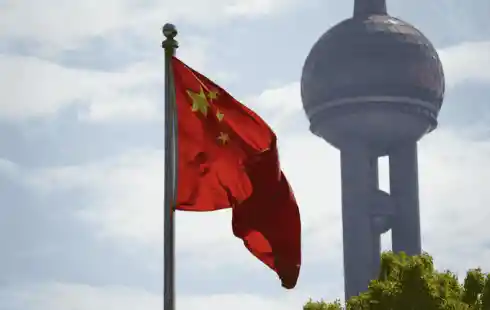
Fully Funded Scholarship Opportunity at the Bavarian International School for 2026-27
Section: News
 President Joe Biden has announced a significant increase in tariffs on Chinese electric cars entering the USA, now set at a staggering 100 percent. This move comes amidst a broader imposition of new or heightened tariffs on various goods, including solar cells, semiconductors, harbor cranes, and medical supplies such as cannulas and protective masks.
President Joe Biden has announced a significant increase in tariffs on Chinese electric cars entering the USA, now set at a staggering 100 percent. This move comes amidst a broader imposition of new or heightened tariffs on various goods, including solar cells, semiconductors, harbor cranes, and medical supplies such as cannulas and protective masks.
The decision, unveiled by the US government on Tuesday, follows concerns over China's flooding of global markets with artificially discounted exports. However, it's noteworthy that these measures are selectively applied to a few strategically vital sectors.
Lael Brainard, Director of the White House National Economic Council, assured reporters of Biden's commitment to maintaining a stable relationship with China. She refrained from speculating on potential retaliatory actions from Beijing. The US government estimates that imports from China amounting to $18 billion will be affected by these new measures.
Previously, Chinese electric cars faced a 25 percent tariff in the United States, effectively keeping them out of the market, unlike in Europe. Brainard cited unfair subsidies to Chinese manufacturers as the reason behind these tariffs, asserting that they could distort competition with their inexpensive vehicles. She emphasized a 70 percent increase in Chinese electric car exports in 2023, posing a threat to investments in other countries.
"The president will not allow this to happen," Brainard asserted. Notably, Elon Musk, CEO of Tesla, had warned earlier this year about the potential dominance of Chinese manufacturers, stating that without trade barriers, they could "pretty much destroy most other car companies in the world."
Drawing from his experiences in Scranton, Pennsylvania, Biden aims to ensure fair competition by preventing the relocation of production to other countries, as noted by the trade representative. The president's administration has secured tens of billions of dollars for investments in the chip industry, infrastructure, and manufacturing during his tenure. This follows the tariffs imposed on imports from China by Biden's predecessor, Donald Trump.
Reacting to the US tariff increases, Chancellor Olaf Scholz (SPD) expressed reservations about EU punitive tariffs on Chinese electric cars. Scholz cited pending investigations by the EU Commission, emphasizing that at least 50 percent of electric vehicle imports from China originate from Western brands that produce them locally. This, he suggested, differs from the situation in other countries and North America.
The impact of the increased tariffs extends beyond electric cars, affecting various industries:
In response to US economic pressure, China has reiterated its commitment to defending its interests. The Chinese Foreign Ministry spokesman criticized the continued politicization of economic and trade issues by the United States and pledged necessary measures to safeguard China's interests.
Despite US claims, China denies promoting surpluses through its economic policies and argues that its green energy industry contributes positively to global efforts against climate change. These tensions underscore the ongoing economic rivalry between the world's two largest economies.
Image by Gaston Laborde from Pixabay

Section: News

Section: Arts

Section: Travel

Section: Arts

Section: Arts

Section: Arts

Section: Fashion

Section: Politics

Section: Fashion

Section: News
Both private Health Insurance in Germany and public insurance, is often complicated to navigate, not to mention expensive. As an expat, you are required to navigate this landscape within weeks of arriving, so check our FAQ on PKV. For our guide on resources and access to agents who can give you a competitive quote, try our PKV Cost comparison tool.
Germany is famous for its medical expertise and extensive number of hospitals and clinics. See this comprehensive directory of hospitals and clinics across the country, complete with links to their websites, addresses, contact info, and specializations/services.
Join us at the Kunstraum in der Au for the exhibition titled ,,Ereignis: Erzählung" by Christoph Scheuerecker, focusing on the captivating world of bees. This exhibition invites visitors to explore the intricate relationship between bees and their environment through various artistic expressions,...



No comments yet. Be the first to comment!